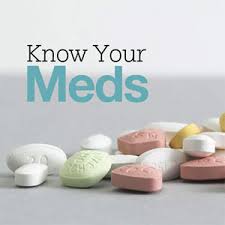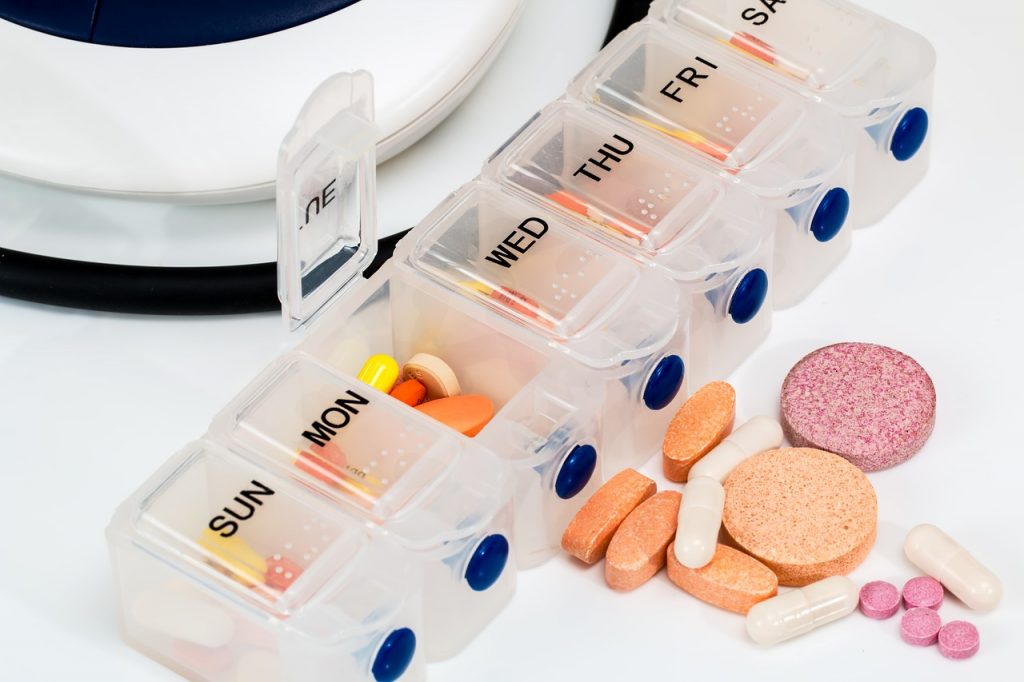How Well Do You Really Know Your Medications?

Greetings, everybody! I hope this post finds you staying healthy and doing well.
The Challenge
I have a challenge for you. Without looking at a prepared list or the vials, tell me the names and doses of each of your medications, along with the prescribed instructions, and what each medication is being used for. This includes any over-the-counter (OTC) products, vitamins, and/or supplements.
Now I don’t want you to type the list of your medications in the comments. I just want you to be honest with yourself as to if you could accurately do it. Did you fall short of 100%? If so, you certainly are not alone. These days, nearly 60% of Americans are taking prescription medications, and over 15% are taking at least five different medications. Additionally, it’s not unusual for medications and doses to change for various reasons (trying to improve patient response, insurance requirements, medication recalls, etc…). If you consider adding some OTC products to the list, it’s not hard to understand why people may struggle to accurately name everything they are taking.
The Importance
You may be wondering why knowing your medications this well is so important. After all, the names, doses, and instructions are on the prescription labels, right? Also, your physician knows what medications you take and why you are taking them, correct? Well, these points may be true. However, consider the following scenarios:
- You approach the pharmacy to ask for a recommendation to help control symptoms you are having. The pharmacist will likely ask you what medications you are taking, to ensure that any recommendation we give will not interact with or impair the actions of your medications.
- You hear of a supplement that offers benefits that you are interested in (e.g. improve your memory, help with digestion, boost your energy, etc…). You’re wondering if this supplement is safe to take with your medications.
- You go to the emergency department. The staff will ask you what medications you take to ensure any actions taken will not adversely affect your health.
Now, if you cannot accurately name the medications and doses, the ability of the health care professional to help you is more difficult. Additionally, research shows that patients who better understand their medications achieve better health outcomes than those who do not. For example, patients taking 2 or more medications specifically for conditions like high blood pressure or diabetes benefit from understanding how each of the medications affect our bodies.

The Solution
Pharmacists are not only your medication experts, but we are also educators. This includes helping people better understand their medications. One of the most effective ways to achieve this is by having a Comprehensive Medication Review (CMR) completed. During a CMR, your pharmacist will review each of your medications, and work with you to increase your knowledge about them. Additionally, we will address any questions or concerns you may have about them. BetterMyMeds offers these CMR and other services. Contact us at http://BetterMyMeds.com to find out more and schedule an appointment!
As always, we encourage asking questions and leaving other comments for us.
Wishing you good health.

#medications #pharmacy #patientcare #MTM

The challenge is simple for me. I only take a multi vitamin and Saw Palmetto for prostate health. One aspect of the discussion is scary. I would hope that any doctor that prescribes medication would know if there was going to be any interaction. Do you think that is the case or do they simply rely on the pharmacist to handle that? As you mention, most people will most likely not be able to pass the challenge.
Thank you for your comment, Tony. It sounds like you take care of yourself and you are fortunate not having to rely on multiple medications to maintain your health (so many people are not so fortunate, hence the reason for this article).
Ideally, yes, prescribers would know of potential interactions between medications ordered, but many times it’s not recognized. Also, many patients have multiple providers (primary, endocrinologist, neurologist, pain specialist, psychiatrist, etc…) which can easily result in medication interactions. There have been times I have reviewed medication lists PREPARED BY THEIR PROVIDERS with significant interactions that were not identified. This is why a good relationship between the prescribers, the patients and your pharmacist is so important!